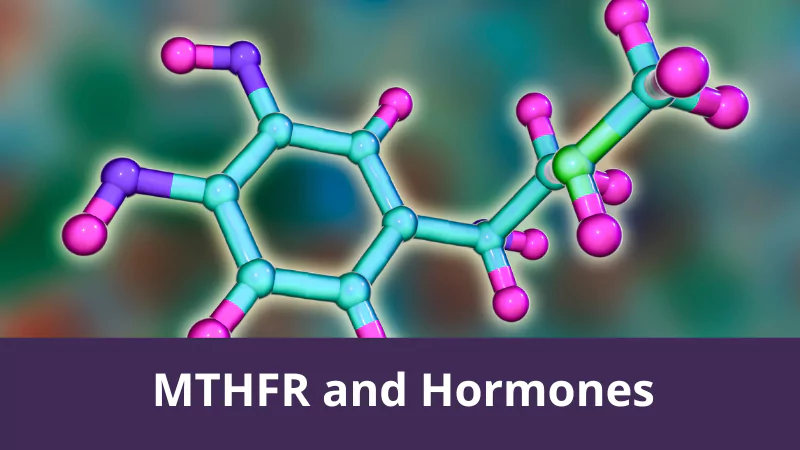By Carolyn Ledowsky
Founder MTHFR Support Australia
Last night I attended the Methylation Seminar in Sydney presented by Metagenics.
The presentation started with a discussion on how Methylation is important for key metabolic processes like creatine synthesis, phospholipid synthesis, cell communication and DNA repair.
Case studies were presented for each of these and we were told that methylation wasn’t the key to solving these cases however in each case the supplements being used were methyl based nutrients. Contradictory to say the least.
However what stunned me was the selective presentation of the research surrounding folic acid use in preconception and pregnancy.
I have spent a whole year researching and understanding the importance of methylation, folic vs 5MTHF vs folinic in preconception and pregnancy. So I am up to date with much of the research. A lot of this is published on our website www.mthfrsupport.com.au
Metagenics put forward Rima Obeid as the leading researcher in the field of folic acid and unmetabolised folic acid (and she is certainly has done much of it), however she selectively reported research to support the use of folic acid (FA). In 2012 Rima Obeid in her paper “The emerging Role of unmetabolized folic acid in Human Disease: myth or reality” says that a daily intake of FA > 200mcg from supplementation OR fortification seems to be associated with unmetabolised free vitamin in the blood. In 2013 in her paper Is “5MTHF an alternative to folic acid for the prevention of neural tube defects ‘ She says “Unmetabolised folic acid appears in the circulation at doses of >200mcg. Individuals show wide variations in their ability to reduce Folic acid and that those with MTHFR polymorphisms should be taking 5MTHF instead of FA. She goes on to say that “In contrast to folic acid, 5MTHF does not mask vitamin B12 deficiency and has no tolerable upper intake level and so is a better form to use in the prevention of neural tube defects in those with the MTHFR Gene”.
DHFR is expressed in the liver. Liver DHFR can bind FA but has a limited capacity for Folic acid reduction. And this happens at doses >200mcg. Rima Obeid sates that ‘unmetabolised folic acid was detected in newborns, it may affect the immune system as it was associated with reduced natural killer cell toxicity. Natural Killer cells are the first line of defence in the prevention of carcinogenesis and viral infections. Furthermore folic acid supplementation during pregnancy has been discussed in relation to respiratory illness in children” Only this year a study by the Johns Hopkins School of Public Health suggested that high doses of Folic acid could increase the risk of autism.
If the DHFR enzyme is inhibited by 200mcg of folic acid because of fortified foods (bread flour, packaged goods, breakfast cereals, protein bars etc) and we put a multi or prenatal with an additional 400mcg then we far exceed the 200mcg. Inhibiting DHFR causes a reduction in reduced folates like folinic acid required for purine synthesis and reduced 5MTHF for RNA, DNA, protein synthesis and fat metabolism. All crucial elements for preconception and pregnancy.
Although we know that MTHFR is not the only gene to consider in pregnancy, many others like MTHFD1, MTHFD1L, MTHFS, SHMT, TYMS all play a part. Other researchers like Sylvia Onusic in the January 2016 edition of the American society of Nutrition found that “folic acid is NOT successful in decreasing neural tube defects in high risk groups and 30-40% of women do not metabolise folic acid. She also found that 200mcg of folic acid saturates the DHFR enzyme and this down regulation affects natural folate binding protein needed to take folate into breast milk”. This is particularly so in autistic children.
In 2009 Steven Bailey published a paper ‘The extremely slow and variable activity of DHFR in human Liver and its implications for high folic acid intake’. He states ‘humans may have a very limited ability to efficiently metabolise FA, especially at high doses’. He goes on to say ‘with the ever increasing exposure to FA from fortification of prepackaged foods, use of supplements and fortification of the basic grain supply, a total FA over 1mg is now not uncommon in the United states”. “The low activity of DHFR in human liver is the fundamental cause of exposure to relatively high transients of plasma unmetabolised FA at doses greater than the daily value”.
In April of this year Jacob Selhub and Irwin Rosenberg in their paper “Excessive folic acid intake and relation to adverse health outcome’ stated that ‘potential detrimental effects of high folic acid intake may not be limited to the elderly nor to those with B12 deficiency”. They found that excessive folic acid was associated with lower natural killer cells in elderly women, maternal high RBC folate is linked to increase insulin resistance in offspring and those with DHFR mutations had a 4 x increased risk of retinoblastoma in offspring if they took folic acid in pregnancy.
I know we should all be checking all the research we get presented but who has the time to do that. We should trust that was is being presented is a fair representation of the research. Pregnancy and preconception is such a crucial time for sufficient active folate levels and the side effects and repercussions of not having it can be devastating.
We cant’ really afford to take risks in our patients with MTHFR mutations or high risk pregnancies.
We should all know by now that in preconception and pregnancy Folic acid is not the best nutrient for those with MTHFR mutations, high risk pregnancy loss, previous Neural Tube defects. I would go so far as to say that folic acid shouldn’t be used at all in pregnancy, given we can now use active folates.
References:
1. https://www.ncbi.nlm.nih.gov/pubmed/23482308
2. .
3. http://www.jhsph.edu/news/news-releases/2016/too-much-folate-in-pregnant-women-increases-risk-for-autism-study-suggests.html
4. https://www.ncbi.nlm.nih.gov/pubmed/19706381
5. https://www.ncbi.nlm.nih.gov/pubmed/27131640








